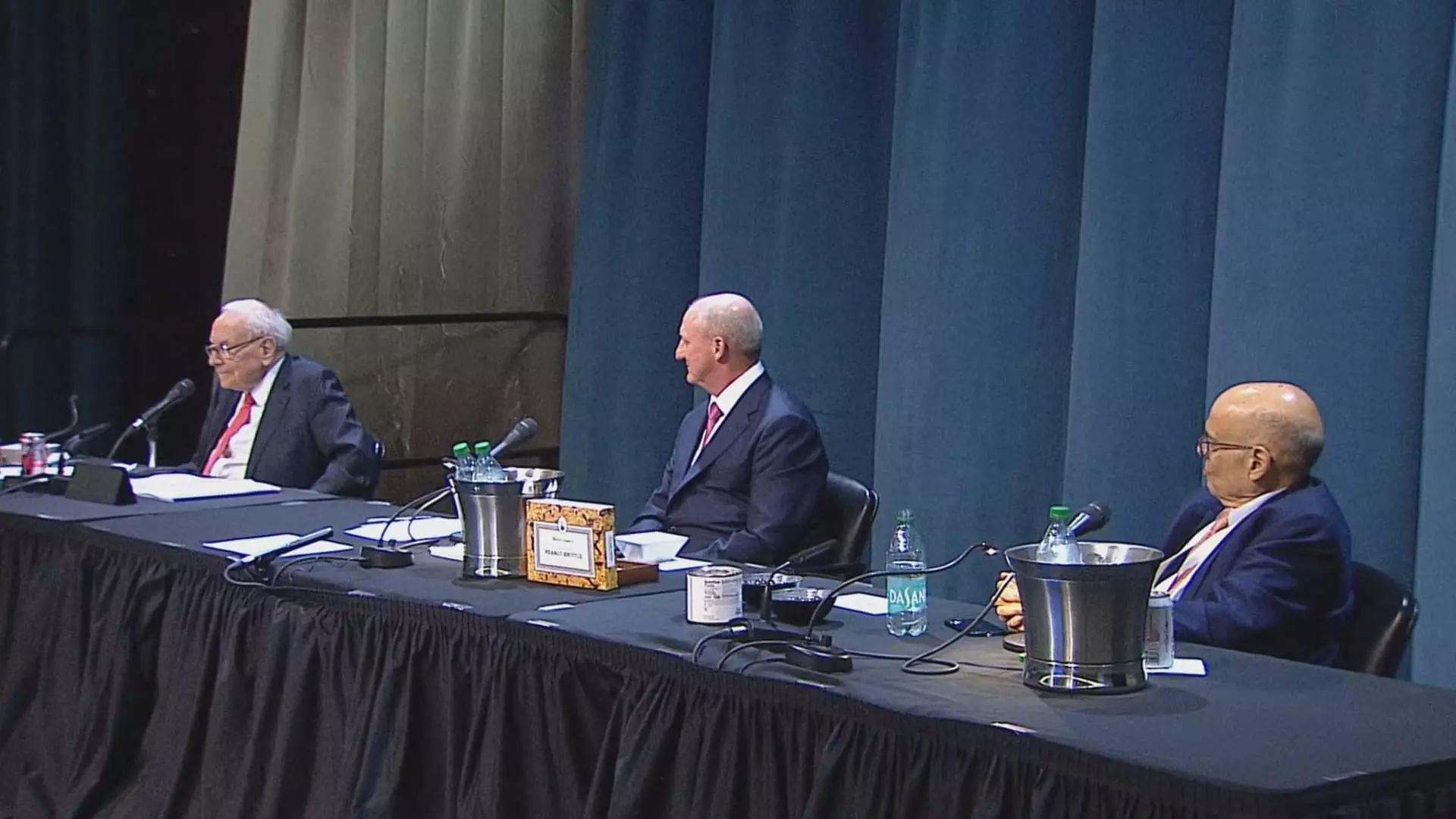With the palpable energy surrounding the annual Berkshire Hathaway meeting beginning to fade, investment enthusiasts brace themselves for a bittersweet transition. Warren Buffett, known affectionately as the “Oracle of Omaha,” is set to bow out as CEO at the close of 2025, an event that will signal the true end of an era—one that has spanned over six transformative decades. As we anticipate this unprecedented leadership change, it’s a good time to unpack some of the profound insights offered by Buffett from the recent meeting, reminders that resonate ever so strongly in a rapidly changing economic landscape.
The Pragmatic Dichotomy: Stocks vs. Real Estate
Among Buffett’s captivating revelations, a remarkable candor emerged regarding real estate as compared to the stock market. Notably, he articulated a blatant preference for equities, which he deems far more manageable. “Real estate is so much harder than stocks,” he stated, alluding to the protracted negotiations and convolutions that often accompany property transactions. While many may view real estate as a stable investment, often seen as a “safe haven,” Buffett’s skepticism provides a wake-up call: ease of operation, liquidity, and analytical clarity make stocks an objectively superior choice, at least in his eyes.
In a world clamoring for tangible assets, Buffett’s preference underscores a broader trend—investors must evaluate risk and return through a pragmatic lens. The decentralized and rapid trading inherent in global stock markets shouldn’t be overlooked, especially when accessibility has become a defining feature of investment success today. For a new generation of investors, grappling with the complexities of a post-pandemic economy, Buffett’s insights serve as compelling guidance.
Discovering Hidden Gems: A Lesson in Diligence
Buffett’s venture into Japanese trading houses unveils a fundamental tenet of successful investing: thorough research can yield hidden gems in unexpected places. This humble point is illustrated when he reveals how he stumbled upon five underrated “sogo shosha” while sifting through a handbook listing thousands of companies. His systematic approach to identifying investment opportunities stresses diligence—a principle that often falls by the wayside in our era of instant information and rapid-fire decision-making.
In today’s world flush with distractions and ever-shifting headlines, Buffett’s emphasis on deep diving into extensive resources serves as a reminder that patience and diligence breed opportunity. Rather than chasing trends, investors ought to revisit the sheer volume of material available to them, enhancing their ability to uncover potential long-term investments.
The Quest for Quality over Quantity in Investment Opportunities
Buffett’s reflections on investment opportunities hinge heavily on the concept that only a handful of ventures yield the greatest rewards. As he succinctly put it: “Berkshire made most of its money on about eight or nine ideas over 50 years.” This is an important takeaway for investors mired in an overwhelming sea of options. The desire for constant engagement can lead to hasty decisions driven by hype, neglecting the strength of fundamental analysis and the potential rewards to be found in select ventures.
The crux of Buffett’s philosophy challenges the conventional wisdom that suggests one should always be actively investing or trading. Instead, he champions a rational, measured approach that calls for investment patience—something that is increasingly rare in today’s fast-paced financial markets. Recognizing the rarity of exceptional opportunities can assist investors in making more informed, judicious choices.
The Mystery of ‘Float’: Understanding ‘Free Money’
The concept of ‘float’ in the insurance industry emerged prominently during Buffett’s discussion, and we’ve seen its significance come to life. Float refers to the capital Berkshire Hathaway holds temporarily between taking in premiums and paying out claims—what Buffett calls “absolutely free money.” Such insights provide a profound look at how companies can leverage their unique advantages, transforming ordinary frameworks into valuable sources of income.
Importantly, Buffett cautions that these mechanisms are not without risks—years of poor underwriting can deplete float earnings. Yet, this nuanced understanding positions Berkshire as not just a company but as a financial force that thrives by employing strategic risk management, challenging traditional views of insurance. It reminds potential investors that understanding operational mechanics can provide insights into long-term resilience.
Going Beyond Numbers: The Importance of Balance Sheets
Warren Buffett’s approach to investing transcends mere income statements; his focus on balance sheets encapsulates his belief in scrutinizing a company’s fundamentals. By concentrating on assets and liabilities, Buffett highlights that understanding a company’s financial health involves digging deeper than standard profitability metrics, a concept often overlooked in favor of sensational numbers.
In a climate often sidetracked by transient performances, publicly traded companies bathed in public scrutiny may neglect deeper financial insights. Buffett’s perspective should ignite a renaissance of disciplined analysis among current and aspiring investors. As economic landscapes evolve, fostering a bias toward balance sheets can arm investors with powerful tools to assess sustainable business models rather than succumbing to the whims of market sentiment.
Through embracing these insights as guided by Buffett himself, both seasoned investors and novices can fortify their financial intelligences. While we face the impending transition of leadership at Berkshire Hathaway, it is indeed the lessons imparted by Warren Buffett that may carry on as the lasting legacy of this remarkable era in investment history.

